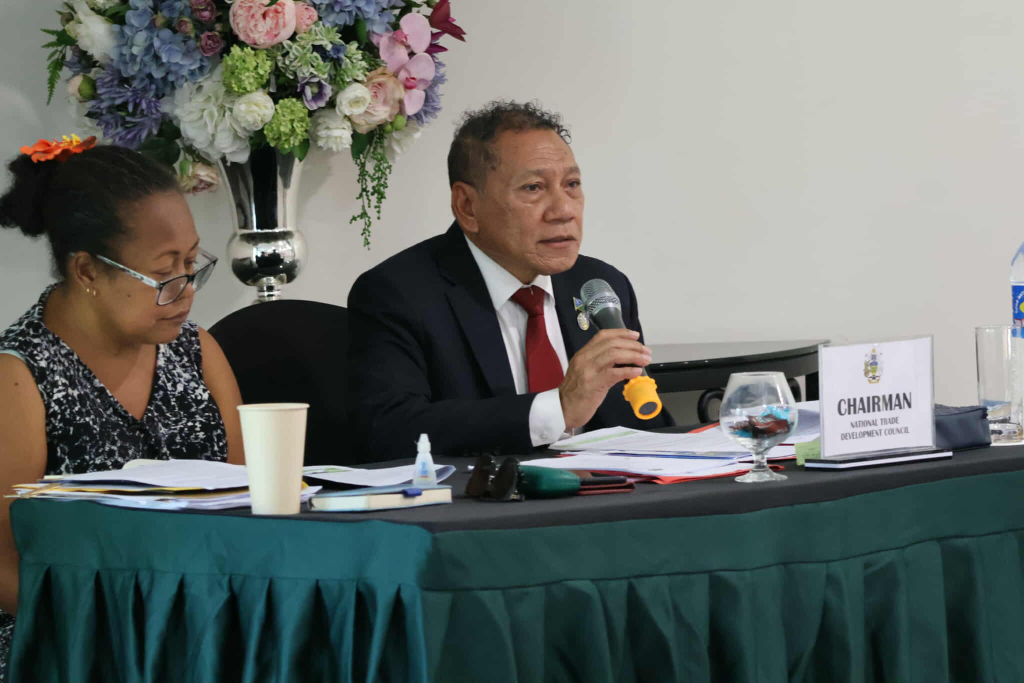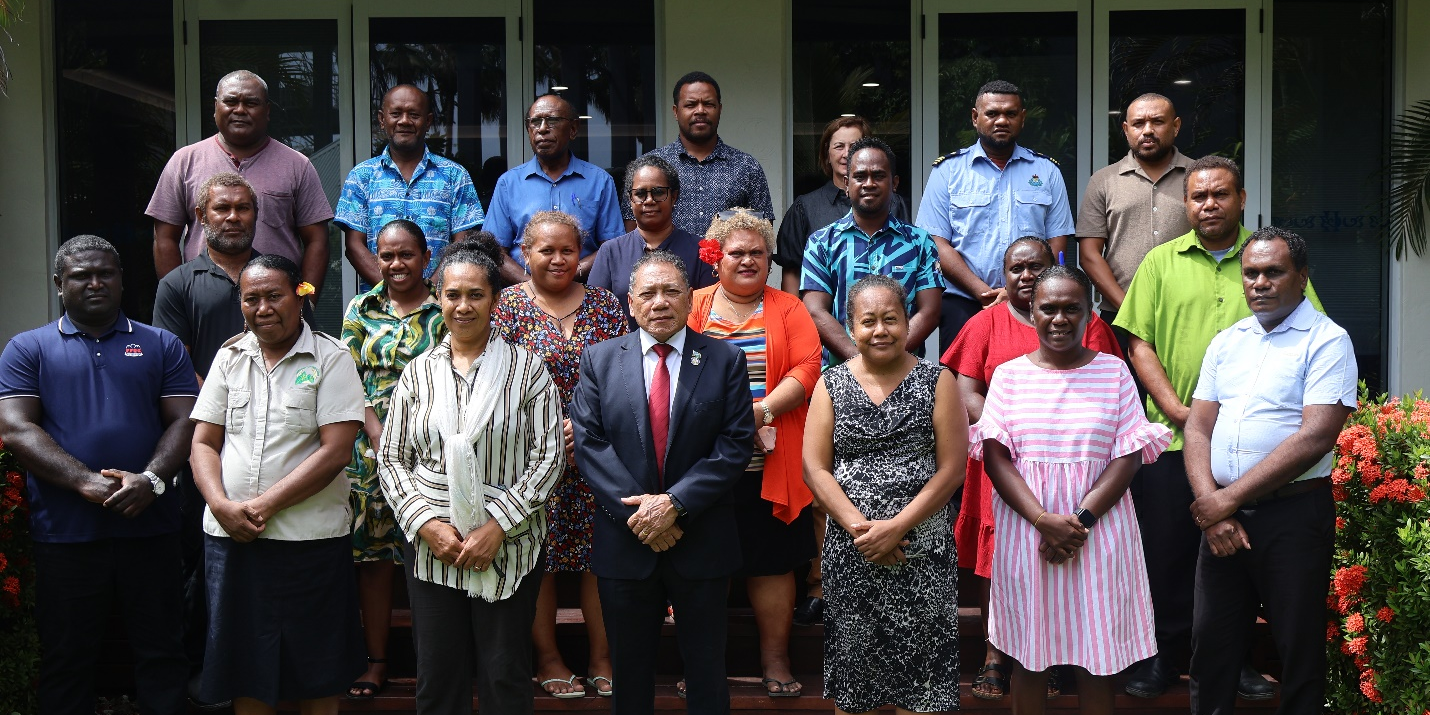The critical role of international and regional trade in driving Solomon Islands’ economic growth, creating jobs, and enhancing national resilience has been highlighted during the 18th National Trade Development Council (NTDC) Meeting on Wednesday 29th October in Honiara.
Minister of Foreign Affairs and External Trade, Hon. Peter Shanel Agovaka made these remarks while officially opening the NTDC workshop at the Heritage Park Hotel.
Minister Agovaka, who also serves as Chairman of the Council acknowledged the body’s pivotal role in shaping national trade policy and ensuring trade contributes meaningfully to Solomon Islands’ broader development goals.
“This forum provides an essential platform for government, private sector, and civil society representatives to come together, share insights, and agree on collective priorities,” he said.
Highlighting the evolving global and regional trade landscape, Minister Agovaka reiterated that strengthening Solomon Islands’ participation in international and regional trade arrangements remains key to unlocking economic growth, creating jobs, and enhancing national resilience.

During the meeting, members received updates on major initiatives including:
- The Solomon Islands National Export Development Policy, which is now in its final draft, outlining sixteen targeted actions to diversify exports, strengthen resilience, and prepare for graduation from Least Developed Country (LDC) status.
- Phase 3 of the WTO Enhanced Integrated Framework (EIF) Project, aimed at securing funding support through the development of the Country Development Programme.
- Updates from the Tourism and Investment Task Force, supporting efforts to improve the enabling environment for tourism and investment.
In addition, NTDC member representatives had the opportunity to reflect on progress made through their trade-related initiatives, provide updates on ongoing programmes and identify areas where challenges remain and where greater coordination and support are required.
The meeting also reaffirmed a shared commitment to inclusive trade development one that benefits the people, empowers the private sector and supports sustainable economic transformation.
Minister Agovaka encouraged all members to actively collaborate, share progress on ongoing initiatives, and identify areas requiring further support.
“The successful implementation of our trade initiatives depends on our collective commitment to coordinate and cooperate effectively,” he said.
Minister Agovaka urged open and constructive engagement throughout the meeting.
—MFAET PR









